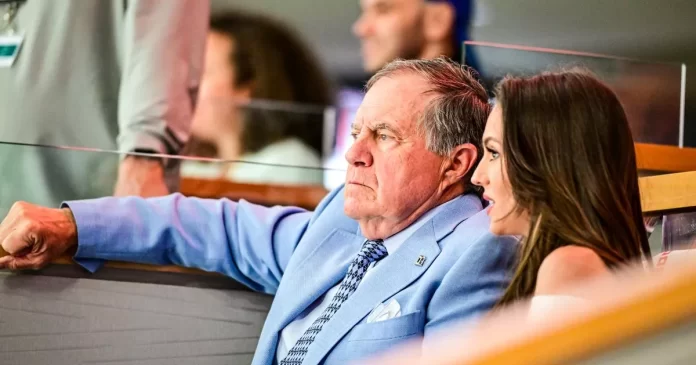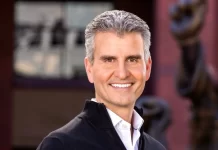Bill Belichick, once the ironclad architect of the New England Patriots dynasty, finds his second act at the University of North Carolina (UNC) marred by a media firestorm of his own making. His storied coaching legacy, cemented by six Super Bowl titles and a reputation for discipline and control, now wrestles with the unpredictable variables of personal life and public scrutiny. At the center of this vortex is Jordon Hudson, Belichick’s 24-year-old girlfriend, whose growing influence and public visibility have become the focal point of controversy.
From Patriot Empire to Tar Heel Turbulence
In late 2024, Belichick took over as head coach of the Tar Heels, a transition that shocked the football world. Despite initial skepticism, he approached the role with typical rigor, assembling a coaching staff peppered with familiar faces from his NFL days and securing significant recruits like Adrian Wilson and the son of LeGarrette Blount.
However, almost immediately, headlines about his relationship with Hudson began to eclipse his football decisions. A CBS Sunday Morning interview, intended to promote his book and signal a new chapter, instead turned into a spectacle when Hudson interjected on air, shutting down questions about their relationship. The moment went viral, with pundits, fans, and even former players like Rob Gronkowski and Julian Edelman weighing in.
The Hudson Effect
Hudson, a former beauty queen and cheerleader, is no stranger to public attention. Her involvement at UNC has prompted allegations of nepotism, reports of inappropriate influence, and even rumors of a ban from football facilities—which UNC has repeatedly denied. Belichick, for his part, has defended Hudson, describing her as his “PR director” and “creative muse,” but he has also reportedly sought to sideline her from official roles following the backlash.
Her presence has become a storyline in its own right. From competing in the Miss Maine USA pageant to social media posts praising Belichick as her “twin flame,” Hudson’s public persona contrasts sharply with Belichick’s historically reserved demeanor. Their 49-year age gap has only intensified the scrutiny, culminating in satirical takedowns by late-night hosts and even a segment on Saturday Night Live.
Repercussions at Chapel Hill
Within UNC, the drama has had tangible effects. A proposed “Hard Knocks” style documentary series was reportedly shelved due to concerns about Hudson’s role. Communications strategies were allegedly adjusted to limit her visibility, including directing staff not to refer to Steve Belichick as Bill’s son to avoid accusations of favoritism. Tensions have also flared within Belichick’s family, with his daughter-in-law criticizing Hudson publicly.
Administrators and analysts have begun questioning whether the distractions are worth the cost. The $70 million contract that brought Belichick to Chapel Hill is under increasing scrutiny as reports suggest his buyout will drop dramatically on June 1, 2025. That date looms as a potential pivot point.
The Personal Becoming Political
Belichick’s decision to allow his private life to become part of the public domain marks a dramatic shift. Known for his tight-lipped press conferences and strategic opacity, he now finds himself the subject of tabloid fodder. The same control he wielded in Foxborough appears elusive in his current setting. Critics argue that the personal indulgences of a man who once demanded total team focus now risk undermining a new program trying to find its footing.
The CBS interview debacle, in particular, represents a turning point. Belichick later claimed it presented a “false narrative,” asserting that Hudson was only doing her job. CBS refuted this, stating there were no preconditions set for the interview. The conflict underscored a widening credibility gap for a coach long respected for his strategic precision.
A Complicated Legacy
Belichick’s coaching genius is not in question. His football mind remains formidable, and his imprint on the game is indelible. But legacy is more than wins. For a man who once epitomized focus and accountability, the current chapter feels discordant.
The question now is not whether Belichick can coach—he can—but whether he can adapt. As the game evolves, so too must its stewards. The spotlight Belichick now faces is no longer confined to playbooks and press rooms. It extends into his relationships, his image, and his judgment.
Whether the Belichick-Hudson narrative is a fleeting tabloid phase or a defining mark on his late-career chapter remains to be seen. But one thing is clear: Bill Belichick, once the NFL’s most calculated figure, is now navigating uncharted territory where the rules of engagement are written in tweets, tabloids, and TikToks—not in chalk on a locker room board.
Conclusion
In many ways, Belichick’s situation mirrors a broader cultural shift, where the lines between professional and personal, private and public, are increasingly blurred. For a man who built his legacy on precision and control, the chaotic nature of celebrity culture may prove to be his toughest opponent yet. And in this new arena, the scorecard is less about championships and more about perception, resilience, and the ability to evolve.
As the summer approaches and speculation swirls, one question lingers: Will Bill Belichick reclaim the narrative—or become a cautionary tale of what happens when a legendary coach loses control off the field?





